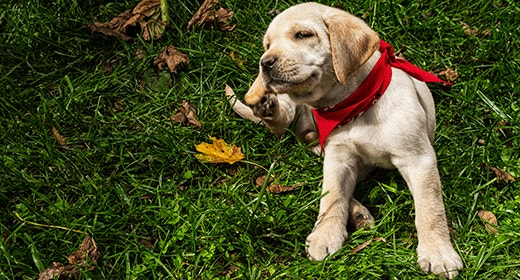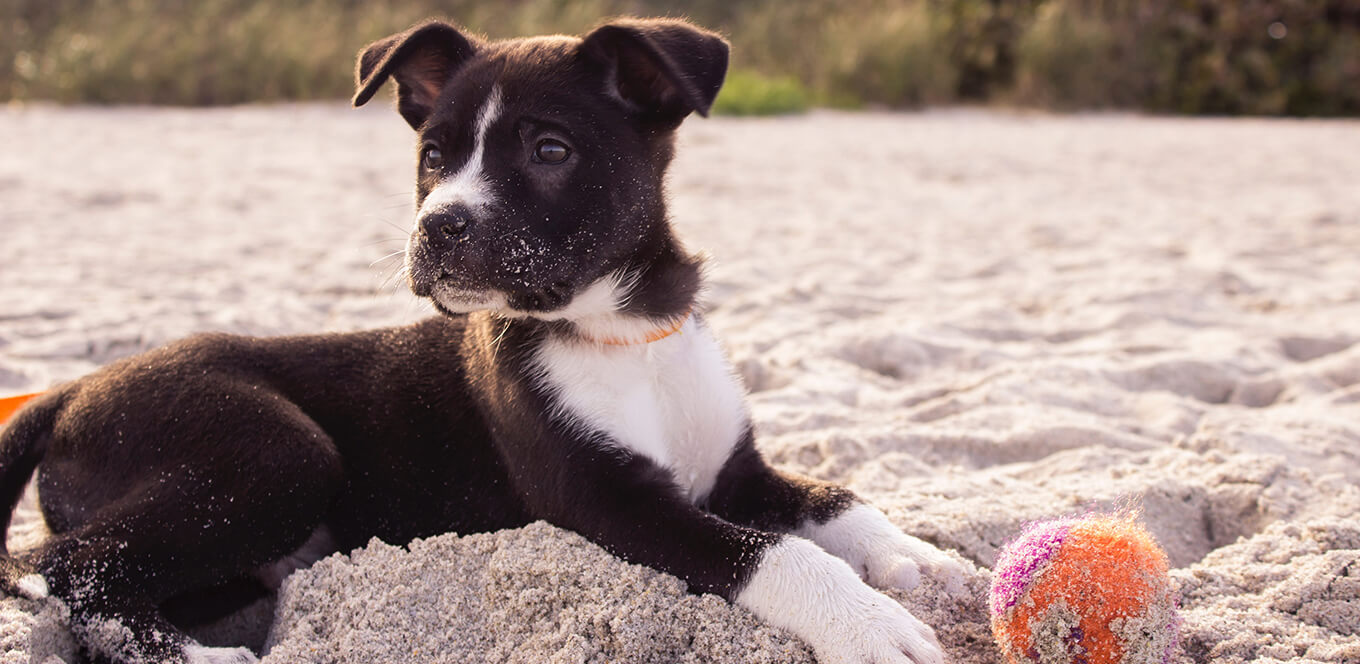

You do everything you can to keep your new puppy happy, and having fleas is definitely not a happy time. Keep these tips in mind to keep your puppy healthy, happy, and flea-free.
The common flea not only causes your dog discomfort, but it can also transmit disease, pass on tapeworms, and cause anemia, especially in vulnerable puppies and older dogs. Regularly inspect your dog for any signs of fleas. Intermittent scratching, biting, and gnawing, plus evidence of flea dirt between your dog's back legs or on top of his rump, are telltale signs of fleas. If your dog is constantly biting and gnawing himself or you can actually see fleas, you've got a full-blown infestation. To check out your dog for fleas, have him stand in a bathtub and vigorously rub your hands through his fur. If little dark dots fall on the tub floor, they're likely either fleas or flea 'dirt' (excrement). You'll know you've got fleas if the 'dirt' turns red when you add a drop of water.
These products work by preventing fleas from biting or reproducing. They are the flea control methods of choice, and when used faithfully as directed, help pet owners avoid many dog health issues associated with fleas.


The timeline for feeding your new puppy changes rapidly over the first six months. Learn what and how you should feed your puppy based on the key development milestones she will experience.
Due to breed differences and animal individuality, it is impossible to predict exact dates for a puppy’s growth and development milestones. However, by using the following milestones as a guide for healthy growth, developmental problems can be spotted — and possibly prevented — early on. By knowing these milestones, you’ll also know when your puppy is ready to begin weaning.
| Age | Milestone |
|---|---|
| 7-10 days old | Puppies double their birth weight. Puppies begin to urinate and defecate on their own. |
| 10-18 days old | Puppies attempt to stand. Puppies’ eyes begin to open. Puppies’ ears begin to open. |
| 18-21 days old | Puppies hear and respond to noises. Puppies begin to walk. |
| 3 weeks old | Begin weaning process for orphaned puppies. Puppies begin responsive vocalization. Deciduous (baby) teeth will begin erupting. |
| 4 weeks old | Begin weaning process for mother-fed puppies. |
| 3–6 months old | Puppies’ adult teeth erupt. |
When your puppy is ready to begin weaning (at around 4 weeks for mother-fed puppies and 3 weeks for orphaned puppies), use this step-by-step process:
The entire process should take approximately three weeks.

